#joseph joachim
Text
Joseph Joachim (1831-1907) - Hebräische Melodien for Viola and Piano, Op. 9, I. Sostenuto. Performed by Michael Gieler, viola, and Lauretta Bloomer, Érard piano, on period instruments.
#joseph joachim#romanticism#classical music#viola#piano#period performance#period instruments#chamber music#violist#pianist#erard piano#period piano#rarely performed composers#hebraische melodien#keyboard#strings
30 notes
·
View notes
Text
youtube
Joseph Joachim (1831-1907) - Violin Concerto No. 1 in G minor, Op. 3 'in einem Satz'
Allegro - Presto assai
Sunyoen Kim, violin
Staatskapelle Weimar Michael Halász, conductor
4 notes
·
View notes
Text
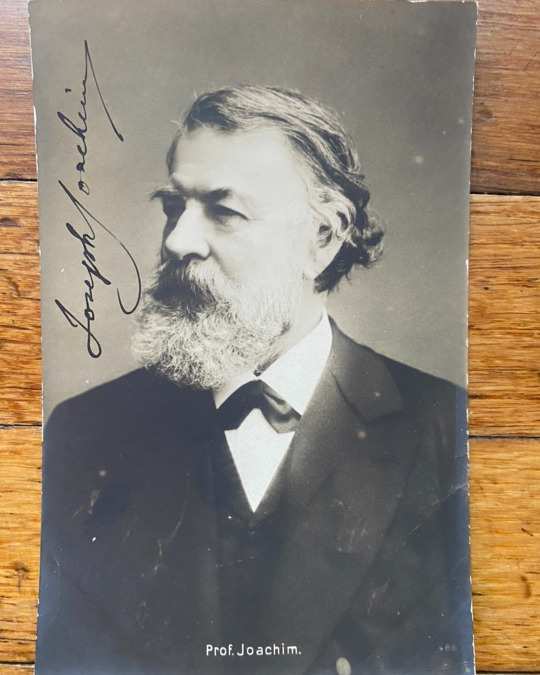
OTD in Music History: Almost ten months after he is first committed to a German insane asylum in February 1854, ailing composer Robert Schumann (1809 – 1856) receives his first visitor: his friend, the legendary young violin virtuoso Joseph Joachim (1831 - 1907).
In 1848, Franz Liszt (1811 – 1886) had taken up residence in Weimar and set about trying to culturally revitalize the city that had at one point been hailed as “the Athens of the North.” To that end, Liszt gathered around him a group of young avant-garde disciples who were vocally opposed to the musical and aesthetic conservatism that prevailed in Leipzig and Vienna. Joachim was among the very first of these Young Turks, and he served Liszt as concertmaster of the Weimar court orchestra for several years, enthusiastically embracing the ideals of the “New German School."
Joachim gradually became disillusioned with Liszt’s vision, however, and by 1852 he set out to distance himself both geographically and artistically from his former mentor by relocating to Hannover. (In later years, he would have a complete falling out with Liszt to the point where they were no longer even on speaking terms.)
It was during this period of transition that Joachim first met Robert (1809 – 1856) and Clara (1819 – 1896) Schumann, and the young Johannes Brahms (1833 – 1897). Robert had tremendous respect for Joachim and Brahms – but although the profound kinship between the older man and his two younger colleagues was immediate and profound, sadly it would not last long: within a year, Robert succumbed to severe mental illness and was permanently institutionalized after attempting suicide by throwing himself off a bridge.
Joachim and Brahms visited Robert on and off during his two year confinement, although Clara was not allowed to see him until just two days before he died. This tragedy forged a tremendous bond between Joachim, Brahms, and Clara, and they would all remain close friends and staunch artistic allies for the rest of their respective lives...
PICTURED: A c. 1900 real photo postcard showing the elderly Joachim, which he has signed.
#Joseph Joachim#Joachim#violinist#violin#conductor#Conducting#composer#classical composer#teacher#pedagogue#Violin Concerto#Concerto#Concert#Overture#Romance#String Quartet#classical music#music#music history#Cadenza#orchestra#Recording#Symphony#music lessons#music teacher#teaching#student
9 notes
·
View notes
Text
"La música de Biber es a la vez fogosa y misteriosa"

[Lina Tur Bonet en imagen promocional como mosquetera. / PABLO F. JUÁREZ]
Lina Tur Bonet debuta en Glossa con un nuevo álbum dedicado a la música para violín de uno de los mayores virtuosos del siglo XVII
Lina Tur Bonet se ha convertido ya en la violinista española que más ha hecho por difundir la música de Biber, compositor bohemio que trabajó sobre todo en Salzburgo y fue el culmen del stylus phantasticus, la forma más virtuosa de componer para el violín en el siglo XVII. En expresión del jesuita Athanasius Kircher, el phantasticus era "el más libre y desenfrenado método de composición [...] instituido para exhibir la habilidad y desvelar el oculto diseño de la armonía", según dejó escrito en su famosa Musurgia Universalis (1650). Esta entrevista tuvo lugar el pasado 11 de julio, justo el día después de terminar en el Festival de Granada su integral de las Sonatas del Rosario del compositor centroeuropeo.
–¿Cómo ha ido?
–Lo hemos disfrutado mucho. Cada vez que se hace es una experiencia. Es la quinta vez que hacía la integral. La primera vez fue en Viena, y luego la he hecho también en Valladolid, Madrid y Tokyo.
–¿Siempre en dos días consecutivos?
–En Viena fue en un día pero en tres sesiones (mañana, tarde noche). Fue en un monasterio dedicado al Rosario y la gente iba, comía, descansaba y pasaba allí todo el día. El resto siempre en dos veces, porque hacerlo en un día tiene que ser algo excepcional.
–Lo ha hecho además con un bajo continuo amplio, como le gusta, ¿no?
– Sí, porque me da la posibilidad de hacer cosas muy en pequeño, con sólo un arpa, una tiorba, un clave, pero también combinar todos los instrumentos y eso le da más variedad.

–En su nuevo disco de Biber hace la mitad de las Sonatas de 1681 y la última partita de la Harmonia artificiosa-ariosa, que está escrita para dos violas d'amore.
–Es un disco que tenía ganas de grabar, incluso antes de hacer la grabación de las Sonatas del Rosario, porque esas fueron las primeras sonatas que yo toqué de Biber y de las primeras que estudié en música antigua. Me enamoré de Biber con una de ellas. Hice la 5ª en uno de mis primeros conciertos barrocos. Es un repertorio que me fascina, y además estas sonatas se tocan menos que las del Rosario. Al sello le pareció buena idea empezar con esto. Para un disco había que hacer una selección, así que de las ocho elegí cuatro. Y como de la Harmonia artificiosa ya habíamos grabado la nº5 para el disco de La Bellezza, decidí coger la de la viola d’amore y añadirla como cierre.
–Pasa continuamente del violín barroco al moderno. ¿Es muy distinto hacerlo a la viola d'amore?
–Sí. Hay mucha diferencia. Mi compañero toca una viola muy importante que le ha dejado una fundación y es bastante parecida en tamaño a un violín, pero la mía es muy grande, es la que tocó Fabio Biondi para grabar los Conciertos de viola d’amore de Vivaldi, y esa es grande. Pero además la viola d'amore tiene una afinación distinta al violín, más cuerdas… Es otro instrumento. Hay más diferencia que la que puede haber entre un violín y una viola, y requiere una técnica algo diferente.
–En sus notas, habla del misterio Biber, ¿en qué consiste ese misterio?
–Lo digo en varios sentidos. En primer lugar, se sabe poco de él. Biber gozaba de muchísima fama por toda Europa. Era consciente de su fama y aspiraba a la nobleza. Pero es que no sabemos ni con quién estudió. Su fama trascendía fronteras y, sin embargo, hay muchas cosas que no sabemos de él. En segundo lugar, era alguien con cierto gusto por las cosas misteriosas, no solo por el Rosario. De joven apreciaba la simbología, los enigmas, encriptar secretos en música. De lo poco que sabemos de su juventud es que se dedicaba a jugar con un compañero a través de mensajes musicales cifrados. Y eso está en su música, que es a la vez fogosa y misteriosa. De repente te sorprendes tocando algunos pasajes: de dónde sale esto, qué quiere hacer aquí, qué cosa tan extravagante.
–¿Cuál es su momento favorito de estas sonatas?
–Es difícil escoger, pero le voy a decir un momento muy muy corto, esforzándome mucho: la sonata en do menor, la nº6, justo cuando hace la scordatura y detrás viene la gavotte, que me vuelve loca, me tiene pillada.
–Una scordatura ahí en medio de la sonata...
–Es sólo bajar una cuerda. y se hace.
–Pero hay que clavarlo porque la sonata no se para...
–Sí, pero es que Biber es así.
–¿Para cuándo piensa grabar la otra mitad de la colección de 1681?
–Ahora mismo no está programado, porque me rompí la clavícula hace unos meses, justo cuando iba a grabar un disco y eso ha retrasado un poco los planes de todo. Hay un poco de cola. Pero por supuesto la intención está.
–Es su primer disco en Glossa.
–Nuevo, sí, pero han sacado ya un recopilatorio con cosas nuestras. El de Corelli iba a salir con Glossa, pero al final lo hice con Panclassics. Ahora vamos a seguir con Glossa, los tres próximos discos serán para el sello, pero prefiero no contarlo todavía, aunque va a ser música de grandes compositores muy conocidos.
–Y la grabación se hizo en Antequera.
–Sí, porque el órgano que quisimos utilizar, que es una maravilla, estaba allí. Es de Abraham Martínez, que nos lo cedió generosamente. Fuimos a Antequera buscando expresamente ese órgano, que era ideal para lo que queríamos hacer.
----------
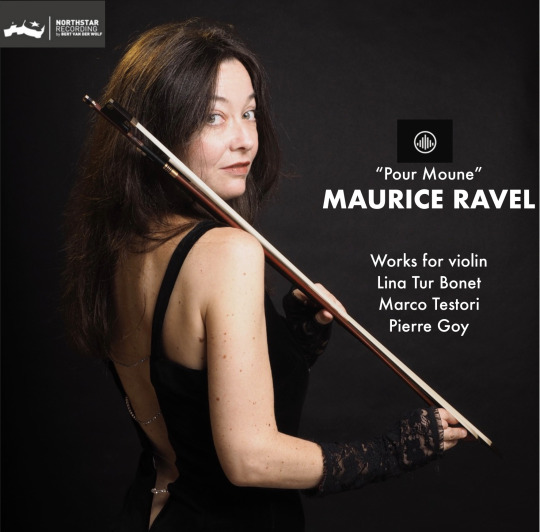
Ravel con instrumentos de época
“El próximo 5 de agosto sale un disco con música de Ravel, en el que toco con cuerda de tripa. Será en el sello Challenge Classics, y me acompaña Pierre Goy, un alumno de Vlado Perlemuter, que fue a su vez alumno de Ravel. Hacemos la Sonata para violín y piano, la Tzigane, que la hemos hecho en luthéal, el instrumento original para el que escribió Ravel la obra. Usamos el luthéal que se conserva en el Museo de Instrumentos de Bruselas, que es el único practicable que hay de la época. La obra se ha grabado ya alguna vez con ese instrumento, pero nunca con cuerda de tripa en el violín. Es más, creo que la Sonata tampoco se había grabado nunca con cuerda de tripa. El CD incluye además la Berceuse y la Sonata para violín y violonchelo, también con cuerda de tripa. Marco Testori es el violonchelista”.
Maurice Ravel compuso Tzigane en 1924 por encargo de la violinista húngara Jelly d’Aranyi, sobrina-nieta del mítico Joseph Joachim. Tratando de conseguir efectos cercanos a la música zíngara, el compositor decidió emplear el luthéal, un tipo de piano patentado en 1919 por el organero belga Georges Cloetens que incluía registros cercanos al del címbalo, el clave o el laúd. Ravel lo utilizó también para conseguir esos encantadores, mágicos, efectos atmosféricos de su ópera El niño y los sortilegios, que se estrenó en 1925. En cualquier caso, el instrumento no tuvo mucho éxito y desapareció rápidamente de la práctica magistral.
[Diario de Sevilla. 1-08-2022]
EL CD DE BIBER EN SPOTIFY
#lina tur bonet#musica alchemica#heinrich ignaz franz von biber#maurice ravel#challenge classics#pierre goy#marco testori#vlado perlemuter#georges cloetens#joseph joachim#jelly d'aranyi#abraham martínez#panclassics#arcangelo corelli#jordi savall#antonio vivaldi#athanasius lircher#música#music#Spotify
0 notes
Text
Fuck anti-reichblr mfs. Back to quality shitposting.
#reichblr#rudolf hess#albert speer#joseph goebbels#hermann göring#joachim von ribbentrop#heinrich himmler#reinhard heydrich#austrian painter
194 notes
·
View notes
Text

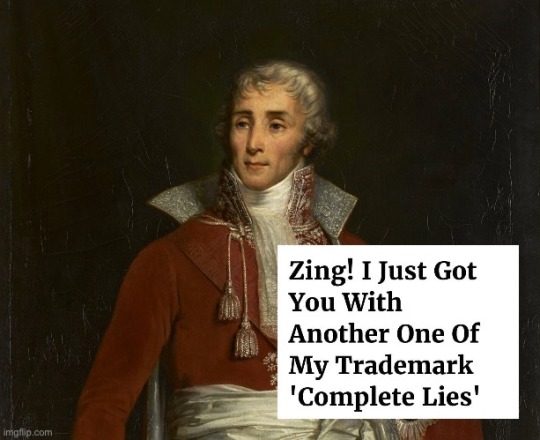



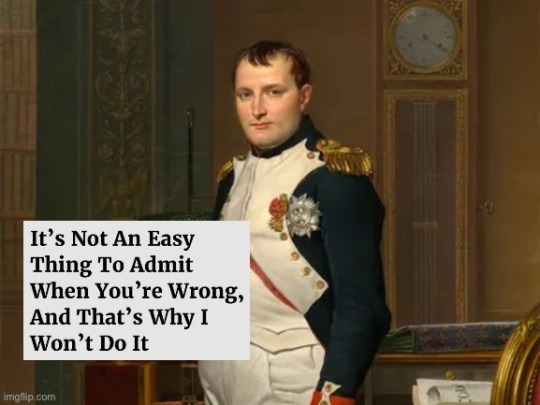




#Napoleonic#Onion Headlines#Napoleonic memes#history memes#Napoleon’s marshals#Napoleon#Napoleon Bonaparte#Napoleonic shitposting#Joachim Murat#Jean Lannes#Joseph Fouché#Louis-Alexandre Berthier#Joseph Bonaparte#Louis-Nicolas Davout
325 notes
·
View notes
Text
Honest Reactions to "I want a baby"

Do I feel bad after creating this? No, but I'm planning to do more of them because I LOVE making these.
Please take this as a joke.
#reichblr#wwii#wwii germany#meme#wwii meme#ww2#ww2 memes#adolf hitler#heinrich himmler#joseph goebbels#martin bormann#reinhard heydrich#joachim peiper#joachim von ribbentrop#albert speer#rudolf hess#hermann goering#michael wittmann
182 notes
·
View notes
Text



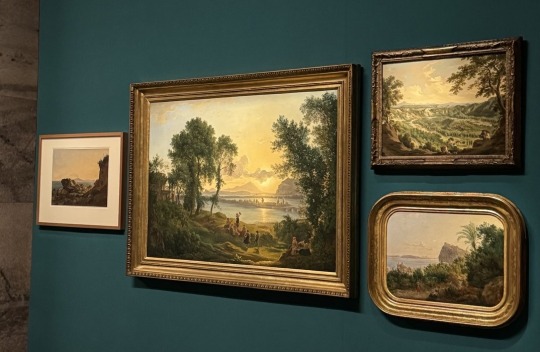

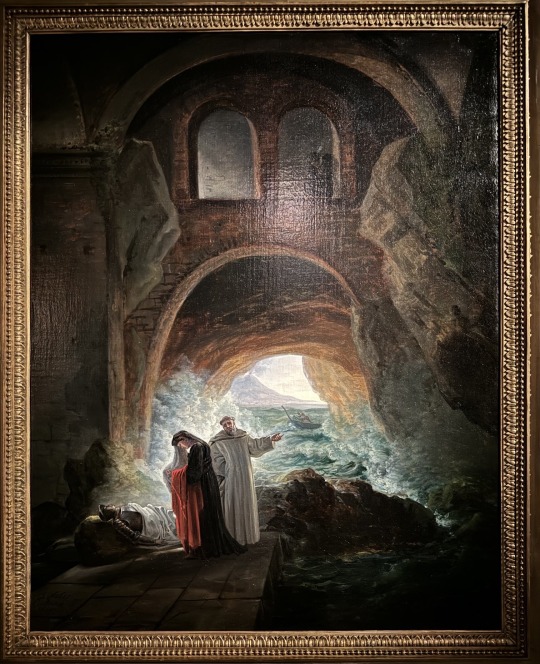
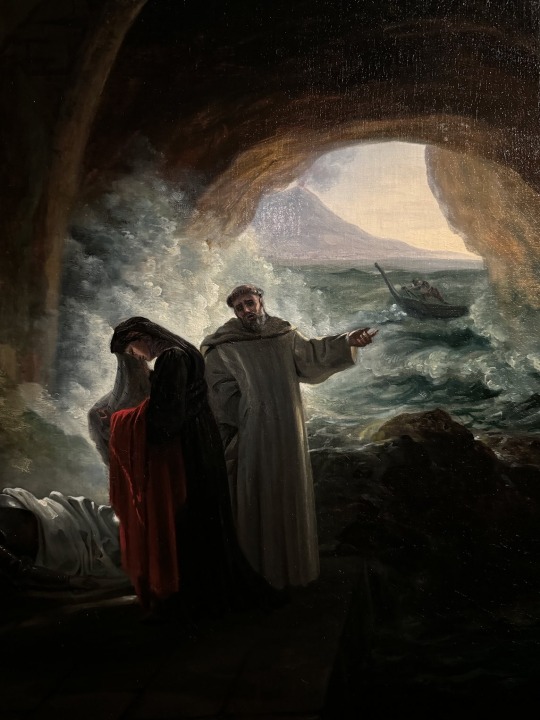
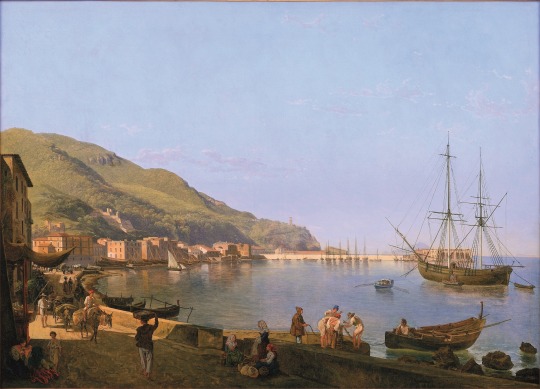
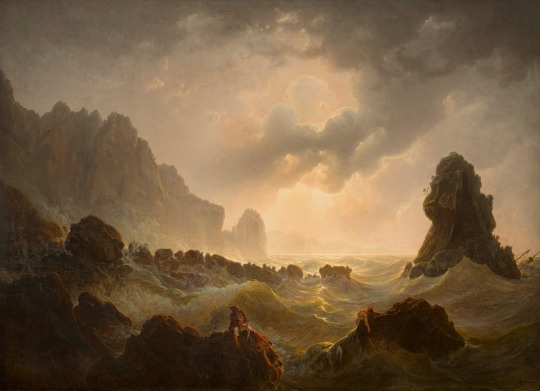

Naples a l'époque de Napoléon : Rebell et la lumières du golfe
Naples in the time of Napoleon. Rebell and the light of the Gulf
Naples in the time of Napoleon. Rebell and the light of the Gulf restores the atmosphere and image of the city in the years from 1808 to 1815, when Joachim Murat and his consort Caroline Bonaparte, the youngest of Napoleon's three sisters, were the much-loved rulers of Naples. This was a period of progress and renewed splendour for the kingdom, marked by extraordinary social, economic and urban transformations and particular attention towards the territory. The culture of the Murats and their modern taste acquired in Paris gave the arts a considerable boost, dividing their time between the official royal palaces of Naples and Caserta and their favourite private residence in Portici.
Patrons of the great portrait painters, Joachim and especially Caroline showed a particular sensitivity for veduta and landscape painting, calling French masters in the genre to their court, Special protection was reserved for the Viennese artist Joseph Rebell, who, along with other specialists in veduta painting, features prominently in this exhibition. Rebell spent several periods of time in Italy between 1812 and 1824, particularly in Naples.
Views of the city, its gulf and magnificent surroundings were his favourite subjects, even after leaving Naples in 1815, fuelling in Europe the myth of the unique nature of this enchanted land celebrated by the painters of the Grand Tour. His training and success are evoked and set against the backdrop of the cosmopolitan Neapolitan scene between the end of the 18th century and the second decade of the 19th century, marked by the presence of numerous travellers and landscape painters who profoundly renewed the vision of reality.
The Murat family itself is also a protagonist of the exhibition, with the presence of numerous portraits, paintings and sculptures bearing witness to the important role it played at that time.
The works are on loan from prestigious organisations, including the Belvedere of Vienna, partner of the exhibition, other major Austrian museum, such as the Vienna Academy of Fine Arts and the Austrian National Library, and French museums such as the Château of Fontainebleau and Versailles.
The exhibition is curated by Sabine Grabner, Luisa Martorelli, Fernando Mazzocca and Gennaro Toscano, with the collaboration of the Institut français in Naples.
Dates: November 23 2023 - April 7 2024
(Gallerie d’Italia)
#Gallerie d’Italia#napoleonic era#napoleonic#Caroline#Murat#Caroline Bonaparte#Joachim Murat#napoleon bonaparte#first french empire#napoleon#french empire#france#19th century#Naples#Napoli#Italy#Joseph Rebell#Rebell#Neapolitan#Naples a l'époque de Napoléon : Rebell et la lumières du golfe#Naples in the time of Napoleon#Naples in the time of Napoleon. Rebell and the light of the Gulf#Rebell and the light of the Gulf#art#Rebell et la lumières du golfe#19th century art#1800s art#veduta
26 notes
·
View notes
Note
A fun little ask: the Marshalate is informed there is cake in the break room. How do each of them react?
Who ever you are, thank you for this sweet little question and I apologise for my late response. 🙈💕
I have ideas for some of them, however I am **not** aware of the maréchals eating habits so any input is welcome here. Also, I don't know all of the marshals well enough but I will try to include as many as possible. Don’t expect any historical accuracy in this.
See this post as a very big headcanon and as one ongoing story where I am going to try to mimic the marshals characters and miserably fail.
Shall we begin? :D
Les Maréchals and cake
Berthier would hear about it and quietly get excited by the idea of having a nice little piece of cake, just for him to be too busy with everything so that he isn't able to leave his desk. Either this or someone (probably one of his adcs) would be nice enough to get for Berthier his piece of cake.
Murat: You bet he is one of the first ones to look at this cake. His reaction might depend on how the cake looks. If it's a huge cake with a lot of golden details, Murat will carry it around so everyone admires this phenomenal cake because it deserves to be looked at.
Augerau and Masséna wonder why there is such a fancy a cake in the break room in the first place and who might have put it there. Augerau asks Masséna with a low voice: “How much money do you want to bet on the cake being poisoned?” Before Masséna is able to answer, Lannes enters the scene.
Lannes runs after Murat with the cake knife demanding to finally get his damn piece of this cake while Murat can't make himself to cut it because this cake is “so damn beautiful that it would be a waste to eat it.” This little game goes on for a minute or two until the other marshals grow impatient, one of them being Ney.
Ney who is known for his hotheadedness tries to save this cake from a disaster aaaaand fails. :) The three of them dispute over who is the actual culprit of this mess.
L: Murat, what have you done?
M: I have done nothing. You followed me with a knife.
N: You let the cake fall.
M: You intervened in my business with Lannes.
The cake has fallen to the ground as Davout, Suchet and Macdonald watched. “Aaand here goes the cake”, Macdonald says; “At least the floor was able to taste it.”
Suchet asks: “What do you think was its flavour?”
”Chocolate vanilla.” Davout answers. After a moment of silence, he adds. “Soult has a good recipe.”
Mortier walks in, seeing how Lannes, Murat and Ney are loudly disputing while Masséna and Augerau get themselves black coffee and Davout, Suchet and Macdonald talking. Lefebvre who was walking right behind Mortier gestures him to move away from the door so he can get into the break room: “What is going on?”
Suchet: “We found a cake-“ Davout interrupts him: “We found a chocolate vanilla cake which we don’t know how it got here or if it was poisoned and now it’s inedible because his royal highness, the King of Naples, made it fall.”
Murat shouts from the back: “I didn’t let it fall.”
Lannes: “Oh, you did.”
Lefebvre offers a solution like the good fatherly figure he is: “Do you still want cake? We could bake a new cake, messieurs.”
Davout replies: “This sounds like a smart idea, Monsieur. Maréchal Soult knows an excellent recipe.”
Lefebvre: “Ahh, excellent. Where is our maréchal?”
Mortier: “He is in his office.”
“Then this where our journey goes next.” Lefebvre slams the door open and accidentally hits Oudinot. “Ah, Monsieur, my apologies. If I had known you were there, I wouldn’t have slammed the door as hard as I did. Are you alright? Yes? Until the next time then.”
Davout walks up to his friend to make sure how Oudinot is doing and explains to him in the meanwhile what is going on and also promises Oudinot to bring him a piece of the cake they are going to bake.
Lefebvre takes the lead and walks straight to Soult’s office while Davout and Mortier follow him. Suchet decides to stay behind while Macdonald thinks about it.
Lefebvre knocks on Soult’s office door: “Monsieur, le maréchal? Are you here?” *Lefebvre knocks again with his energetic manner.* “Monsieur, le maréchal, it’s me, Lefebvre. Open the door!*
Soult opens the door with his usual unimpressed demeaner: Hm?
Lefebvre: “Excusez-moi, mon maréchal, I heard you have a recipe for a delicious cake?”
Soult: Cake? What cake?
Davout: The chocolate vanilla one… the one you baked for your daughter Hortense’s birthday. The delicious one.
Soult: Ah, yeah. That one. What of it?
Mortier: We would like to bake this cake, which is why we want to ask if you mind us borrowing the recipe?
Soult stares at his co-maréchals for a second, he shuts the door, opens it again with a piece of paper in his hand which he gives to Lefebvre. “Here. Is there anything else you need?”
Macdonald who decided to join the baking group walks up to them and asks Soult: “Would you mind to lend us your baking equipment?”
- “No. Have a nice day.”
Soult shuts his door while Lefebvre shouts: “Thank you for your help, Monsieur Soult.”
Macdonald asks: “What are we going to do now?”
“We are going to bake the cake now, my good friend”, Davout answers.
Mac: “Where? Where do you want us to bake the cake? Do we have the right ingredients?”
D: In the kitchen and I don’t see why we shouldn’t have the ingredients.
Macdonald looks at Davout with suspicious eyes about the matter if they are going to manage to bake this cake…
The group of maréchals appear in the imperial kitchen where they start to gather the right ingredients. While the group is busy with the preparations, les maréchals Pérignon and Sérurier appear, wondering what is going on. As Lefebvre is explaining these two their baking journey up until now, Pérignon and Sérurier decide to join them: “A cake made by maréchals for maréchals.”
What could possibly go wrong with two additional heads in the kitchen? As it turns out: Everything.
Pérignon and Sérurier manage to overdo the cake by confusing salt with sugar. The cake tastes salty, the icing itself is fine because it was made by Davout who religiously followed Soult’s directions. In addition to that, monsieur Lefebvre manages to mix up usual paper with baking sheets.
Bernadotte walks into the kitchen as he sees his fellow maréchals working on their baking project. He comments on the scenery: “This is just pure chaos without any discipline, a chaos which can’t possibly create something edible.”
Davout replies “Well, have you ever baked anything in your miserable existence which you so call your life?”; to which Bernadotte says: “wELL, no, BUT-“
Davout continues: “Then get out of this room and give me my peace back or shut up.” Bernadotte decides to leave.
As Bernadotte is leaving, Jourdan walks right into the scene with an apple in his hand. A fire starts to break out in the oven and Jourdan, like the team player he is, turns and leaves this mess to his co-maréchals without saying one word.
Nothing is going as Davout had it planned. He sits in a corner, mourning this beautiful chocolate vanilla cake he had in mind. Macdonald sits right next to him with a spoon, telling him: “Well, at least the frosting you made yourself is delicious.”
Davout, completely shattered by the fact that he wasn’t able to make his desired chocolate vanilla cake, puts his face into his palms until a surprise visits the kitchen: It’s maréchal Soult. With a cake. A chocolate vanilla cake. A chocolate vanilla cake which is neither burnt nor oversalted. A chocolate vanilla cake according to the recipe. Next to Soult is Oudinot who cuts two pieces of the cake: one for himself and one for his good old friend, Louis Nicolas Davout.
After Soult, Ney and Lannes enter the kitchen. Ney silently takes a piece of Soult’s cake, saying nothing except a simple “thank you”. So do Macdonald and Mortier. Soult tolerates Ney’s presence. Lannes on the other hand goes straight to the oversalted and burnt cake which the older maréchals made and are also eating. Kellermann and Grouchy, as late to the party as ever, also go for Lefebvre’s bad cake while Soult’s good cake is still sitting there. Soult can’t hide his look of disgust.
At some point, Bessières and Murat join or rejoin retrospectively the scene, walking up to Soult’s cake. Bessières, as well mannered as he is, takes one piece of a cake to which Murat comments: “I know how much you like this lovely type of cake, Bessières, take a second piece.”
- “No”, Soult replies: “That’s not your cake. Take your piece and leave.”
Murat adds: “For whom are the other pieces then? I don’t see anybody who would possibly want to eat this gorgeous baked good. We want to eat your delicious creation of a fabulous cake.”
- “One piece each. You can give him your piece if you like to.”
Bessières interrupts the two: “I am content with my piece.”
Murat doesn’t listen to what Bessières says and continues his conversation with Soult: “My fellow maréchal, I don’t understand, why do you struggle so much with allowing somebody to have one additional piece of cake than the other ones?”
While Murat and Soult continue their dispute which leads to nowhere, one adc enters slowly the kitchen. He looks at Soult who recognises this man as one of Berthier’s adcs. He came to get a piece of cake for his marshal. Soult lets him take one of the few pieces left.
All of a sudden, Kellermann seems to be chocking on his salty cake piece. All the maréchals are gathering around him and in the chaos, the last few pieces of Soult’s cake fall to the ground. Soult looks at his cake or what’s left of it. One could argue that everyone who wanted to eat it was able to eat it. One could argue that these fallen pieces can be ignored and Soult could go on with his day never ever thinking about the pieces again. However, we are talking about maréchal Soult here who sees the art in baking. The love, the accuracy of it. Today he didn’t just bring cake to his fellow maréchals. Today he witnessed how some of them have no sense of dignity for what it means to be able to eat good food. Good cake. Soult is leaving the room, not bothered about Kellermann as he wouldn’t be able to help anyway. He is going to his wife, his Louise Berg, who asks him about his day. He tells her the whole of it. How he was surprised by his fellow maréchals who wanted to bake a cake. How he knew that they are going to mess up his recipe. How he baked that cake properly and how a part of it went to waste. “Some of them ate oversalted and burnt cake. Who eats bad cake? Who likes bad cake???”
Davout on the other hand was thankful for Soult. With a smile on his face, Davout enjoyed his so desired chocolate vanilla cake, unbothered by the event surrounding him.
The end. :)
#Napoleonic headcanon#headcanon#napoleonic#louis alexander berthier#joachim murat#charles pierre augerau#andré masséna#jean lannes#michel ney#louis nicolas davout#louis gabriel suchet#étienne macdonald#édouard mortier#nicolas charles oudinot#françois joseph lefebvre#jean baptiste bernadotte#jean baptiste bessières#jean baptiste jourdan#jean de dieu soult#louise berg soult#And the rest :)#i am too tired for this#i hope you like it#cake
52 notes
·
View notes
Text
Sexy clinch 1790s French edition
#napoleon bonaparte#josephine beauharnais#charlotte robespierre#fouche#joseph fouché#herault#hérault de sechelles#suzanne de la morency#caroline bonaparte#joachim murat#murat#joseph fievée#theodore leclercq#louis-antoine saint-just#thérèse gellé#theresia cabarrus#jean-lambert tallien#camille desmoulins#lucile desmoulins#mademoiselle raucourt#sophie arnould#clinch#romance art#frev#french revolution#napoleonic era#let the games begin
58 notes
·
View notes
Text









Some stories from Joachim Rønning's Instagram (@ joachimronning) highlight titled 'TRON' as of Aug. 15, 2023, behind the scenes for TRON: Ares. [x]
#we have our first set test pic tronblr how do we feel#i am still cautious about tr3n at all tbh#tron#tron ares#tr3n#joachim rønning#joseph kosinski#rex speaks#there are more pics on the highlight but its like. zoom meetings so i didnt want to post that on a tron fanblog lmao
18 notes
·
View notes
Text
MALMAISON MEDIA SALON SOIRÉE 15: NEEDING NAPOLEON (2020)

1. The Introduction
Hello, Neighbors! Welcome back to Malmaison Media Salon! At last we’re here and today is a bit of a special review. Why special?
Let me explain:
1. Firstly, it’s one of those cases where I stumble upon a media piece via recommendation from another community member. This time it was @suburbanbeatnik , who interviewed the author of the book and there was a contest where the first 3 users to comment would get a free ebook copy via email.
I was the first to comment because I was given the link and because I was really excited about what sounded like a promising story, considering my soft spot for the adventure genre, time travel and alternative history. So yeah, I became one of the lucky three users.
Unfortunately, the book is only available in English and has to be purchased through websites like Amazon, so those who don’t speak English too well might be out of luck for now.
2. Secondly, it’s one of the few anglophone (British, to boot!) media pieces that DO NOT paint Napoleon as a villain! How cool is that?! For newcomers, stumbling upon a gem like that is about as likely as seeing a UFO, so you can bet your asses that I HAD to check out the book!
3. Thirdly, I already mentioned that I’m a sucker for adventure, time travel, historical fiction and alternative history so that really boosted my excitement… as well as my worries. I prayed that the book would turn out to be good. Luckily, it did! More on that later though.
Anyway, before we proceed, this review is dedicated to @suburbanbeatnik and @garethwilliamsauthor . Not only is the latter, well, the author, but he also graciously gave me permission to write said review and I’m thankful for this.
Okay, with formalities out of the way, let’s begin!
2. The Summary
The novel tells the story of one Richard Davey, an ordinary schoolteacher who admires Napoleon and lives a very boring, lonely life.
However, during a fateful holiday in Paris, he gets a chance to leave his old life behind, meet his hero and maybe even change the course of history.
To me, the idea sounds very interesting, so let’s move onto the deeper analysis and see if the execution matches the potential.
3. The Story
Although the beginning of the story did confuse me a bit because we jump straight into action, I. Fucking. Love. This. Book. I was extremely hooked when reading and felt like I was back in my childhood, reading my favorite swashbuckling stories. The excitement is REAL.
The pacing is excellent, most loose ends get tied up in the end, the ending is satisfying yet also realistic and we don’t have the protagonist getting everything he wanted, which is awesome!
I did have a problem with the flashbacks though, mainly because they kept popping up and breaking the storyline immersion, but that’s just me.
Also, there’s a good mix of gritty artlessness (in a good way because it doesn’t gloss over war), a swashbuckling adventure, romance and down time (we can’t have action ALL the time).
The romantic subplot is very well-written and realistic, even though my asexual self still didn’t care much because I don’t normally like romance. Spoiler, it’s one of the few times where the protagonist doesn’t get the love interest in the end, for a lot of reasons.
So yeah, only minor complaints here and there.
(Oh, and tiny bonus for the Frev community: Frev isn’t demonized either!!! Yay!!!)
(P. S. Also there were a lot of moments that cracked me up, like the pun with HMS Bellerophon being called Billy Ruffian.)
4. The Characters
Richard Davey is by far one of the most relatable characters ever, since I can relate to his loneliness (me during the worse days of depression) and love for History (I’m a Frev and Napoleonic nerd). He’s flawed, reacts realistically and in his own way to situations and has a great character arc, from a man just going with the motions of life to a hero who can and does make a difference in history, just not in the way he first planned.
Emile Béraud, a soldier Richard befriends in the past, is an absolute sweetheart. Loyal to a fault, friendly and just as lonely as Richard, he takes part in the adventures and is a very compelling character.
Aunt Patricia, Richard’s only living relative, might be a minor character who doesn’t personally appear, but her presence is felt throughout the story and Richard constantly imagines what she would have to say in his position and how she would judge him.
Madame Odillet, the owner of an antique shop who helps Richard get back in time, is a mysterious woman with a troubled past, who definitely knows more than she first lets on. I like the book parallels between her and witches, even though she’s just a regular human.
Napoleon starts out as an insufferable punchable prick, but later on his portrayal becomes nuanced. He loves and misses his son, has a soft spot for kids, has a temper and at times alternates between acceptance of his fate and resolve to fight back. He’s not in a good place mentally nor physically, but he’s portrayed as someone flawed yet far from being a bad person.
Jerome is an arrogant hedonistic ass. Full stop. But he’s a minor character so I can understand why he’s not as nuanced, even if I wish there was a bit more complexity.
Gourgaud is an impulsive and arrogant bastard who is loyal to his emperor yet entitled due to having saved said emperor twice.
Bertrand and Fanny are extremely sweet.
Las Cases… I found him unpleasant and arrogant.
Murat and Caroline are mentioned and, LUCKILY, not depicted as traitors.
Ney in his cameo is his usual post-Russia reckless self (he possibly had PTSD, I believe).
Overall, the cast is memorable and I did enjoy the portrayals for the most part.
5. The Setting
The descriptions really sell the setting here, in my opinion. I particularly enjoyed the scenes at Malmaison where Napoleon essentially is Richard’s tour guide.
Always nice to see that the author really did their research and has a way with language to make immersion that much easier to achieve.
6. The Writing
Once again, the descriptions. Short, sweet, to the point.
The language is mostly easily understandable, but there are French words sprinkled in that (fortunately) can be more or less understood in context. I wish there were footnotes with translations though. Oh, and some words were unfamiliar to me as a foreigner so please keep that in mind too.
7. The Conclusion
If you can, please give the book a go. Remarkable adventures, nuanced characters and believable settings that are reminiscent of swashbuckling novels are definitely worth your money, in my humble opinion.
Of course, no work is perfect but I throughly enjoyed this one despite some flaws and I look forward to reading the sequel. It’s not every day we get an anglophone pro-Naps media piece, after all.
On that note, let us conclude today’s soirée. Please stay tuned for updates on future reviews, my dearest Neighbors.
Love,
Citizen Green Pixel
#needing napoleon#napoleonic era#malmaison media salon#book review#napoleon bonaparte#las cases#gourgaud#bertrand#cw fouché#i still refuse to make a fouche tag#caroline murat#joachim murat#marshal ney#marshal soult#hortense de beauharnais#jerome bonaparte#joseph bonaparte#josephine bonaparte#battle of waterloo
47 notes
·
View notes
Video
youtube
Joseph Joachim (1831-1907) : Notturno for Violin and Orchestra, Op. 12 ·
Daniel Hope · violin
Royal Stockholm Philharmonic Orchestra · Sakari Oramo
2 notes
·
View notes
Text
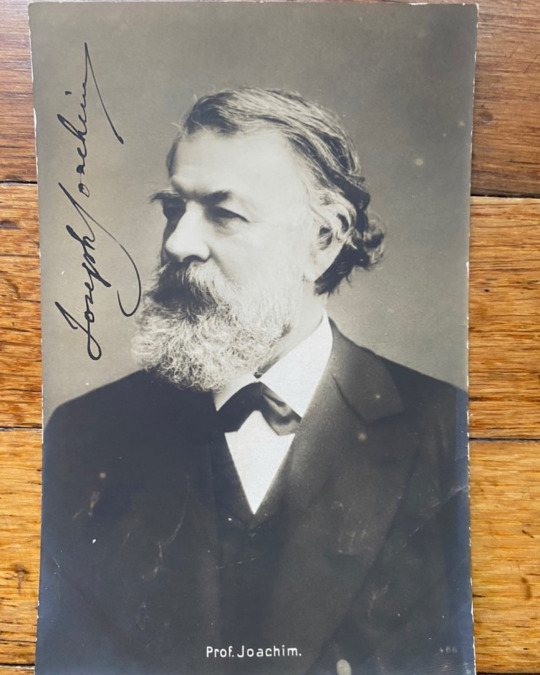
OTD in Music History: Legendary virtuoso violinist Joseph Joachim (1831 - 1907) is born in what is now Austria (then, Hungary).
In 1848, famed pianist-composer-conductor Franz Liszt (1811 – 1886) took up residence in Weimar and quickly set about trying to culturally revitalize the city that had at one point been hailed as “the Athens of the North.” To that end, Liszt gathered around him a group of young avant-garde disciples who were vocally opposed to the musical and aesthetic conservatism that prevailed in Leipzig and Vienna. Joachim was among the very first of these “Young Turks,” and he served Liszt as concertmaster of the Weimar court orchestra for several years while enthusiastically embracing the ideals of the “New German School."
Gradually, however, Joachim became disillusioned with Liszt’s vision, and by 1852 he had set out to distance himself both geographically and artistically from his former mentor by relocating to Hannover. (In later years, their falling out would become so complete that they were no longer even on speaking terms.)
It was during this period of transition that Joachim first met Robert (1809 – 1856) and Clara (1819 – 1896) Schumann, as well as the young Johannes Brahms (1833 – 1897). Robert had tremendous respect for both Joachim and Brahms -- but sadly their budding friendship was fated to end almost as soon as it began: within a year, Robert succumbed to severe mental illness and was permanently institutionalized after attempting suicide by throwing himself off a bridge.
Joachim and Brahms visited Robert on and off during his two years of confinement, although Clara was not allowed to see him until just two days before he died. This shared tragedy forged a tremendous emotional bond between Joachim, Brahms, and Clara, and they would remain close friends and staunch artistic allies for the rest of their lives...
PICTURED: A c. 1900 real photo postcard showing the elderly Joachim (who outlived both Brahms and Clara), which he signed.
#opera#classical music#music history#bel canto#composer#classical composer#aria#classical studies#Joseph Joachim#Joachim#violinist#conductor#classical history#teaching#teacher#pedagogue#concerto#concert#Overture#Cadenza#maestro#chest voice#classical musician#classical musicians#musicians#musician#classical#historian of music#music#history
3 notes
·
View notes
Note
also, you were talking about georges' feats in the military; could you share those stories if ya have 'em? i don't think I've ever read any of them before
thank youu :))
Dear @msrandonstuff,
of course I can!
Many of the sources I am going to rely upon are La Fayette’s letters to friends and family members. Because like every proud Papa, La Fayette liked to tell everybody what his son did and accomplished.
Georges was a good officer who took his role very serious and who not only freely choose this occupation for himself and enjoyed it, but who also understood how his military conduct was connected to his and his family’s honour. Here is a description of Georges’ military qualities from an undated letter La Fayette wrote his friend Amé Thérèse Joseph Masclet:
The fact is, that George, who is a republican patriot, -- and I have met with few such in my lifetime, -- has, besides a passion for the military profession, for which I think him adapted, as he possesses a sound and calm judgment, a just perception, a strong local memory, and will be equally beloved his superiors, his comrades, and his subordinates. I love him with too much tenderness to make any distinction between his desires and mine; and I am great an enemy to oppression of every description place a restraint on the wishes of a beloved son twenty years of age. I could joyfully see him with honourable scars, but beyond that supposition have not the courage to contemplate existence.
Jules Germain Cloquet, Recollections of the Private Life of General Lafayette, Baldwin and Cradock, London, 1835, p. 131.
While, as La Fayette wrote, he thought Georges very much suited for the military and although he liked the idea of Georges following in his steps, he was above forcing his son to follow a certain path. La Fayette believed children should make their way, independent of their parents’ wishes – although the parents should support and guide their child because a father for example knows his son differently than the child knows itself.
Georges joined the military and was made a sous-lieutenant around the time of the Battle of Marengo. He served in succession as an aide-de-camp to the Generals Canclaux, Dupont and Grouchy. Towards the end of Georges’ military career, Marshal Joachim Murat wanted to appoint Georges as his officier d’ordonnance but Napoléon was against it and the appointment never came to pass.
Georges was wounded in the Battle of Minico/Battle of Pozzolo on December 25, 1800. La Fayette wrote the following about his son’s injuries and conduct to Masclet on 28 Pluviôse [February 17] [1801]:
I have not this long while heard from you my dear Masclet: sure I am, nevertheless, that you do not forget your friend, and that you have been pleased with George’s good fortune on the Mincio. He was in the wing and under the general who fought and won the action. The eleventh regiment of hussars was the most distinguished. My son had for his share three bullets, but slight wounds. General Dupont tells me he had named him in the account of the battle. George insisted on the suppression of the mention made of him, unless the same was done in favour of his wounded comrades. His wounds would have been sooner cured, had he not remained with the regiment as long as there was something to do which caused an inflammation and a dépôt in his arm. But when the eleventh hussars made the blockade of the forts of Verona, which put them out of the way of danger, George got into the city, where he was very well taken care of. When General Dupont saw him last, he was in good train of recovery, although he yet wore a scarf. His side was still less damaged than the arm. So that the danger of the battle, which has been great, being over, we have had nothing to fear, and much to rejoice at. I give you those details as I know you will enjoy them. Here is a good honourable solid peace.
Jules Germain Cloquet, Recollections of the Private Life of General Lafayette, Baldwin and Cradock, London, 1835, pp. 229-230.
Georges wounds were without serious consequences, and he fully recovered. He next distinguished himself during the Battle of Eylau on February 7-8, 1807. La Fayette again wrote to Masclet:
George was on the eve being appointed to the rank of captain, and even the Emperor, before he went to Italy. had promised his promotion to Generals Grouchy and Canclaux and to M de Tracy [Georges’ father-in-law]. Since that period, my son has served as volunteer aide de camp at the embarkation at Helder, at Ulm, at Udine, and in the new war at Prenzlaw, at Lubeck, at Eylau, where he had the good fortune to save his general; and at Friedland, where Grouchy commanded the wing of the cavalry which routed the Russians only at the seventh charge. The promotion promised before all these events, and for which several applications had been made by the principal ministers and general officers, has been constantly refused, so that George, although the senior lieutenant of the division, has abandoned all idea of advancement. The peace will bring him back to us, as he is a volunteer: we expect him immediately.
Jules Germain Cloquet, Recollections of the Private Life of General Lafayette, Baldwin and Cradock, London, 1835, p. 106.
La Fayette also wrote to his friend Thomas Jefferson regarding Georges’ conduct at Eylau. The Marquis wrote on April 29, 1807:
My Son and Son in Law are in the Army of Poland under the Emperor’s Command, the one as a Volunteer Aid de Camp to General Grouchy, the other as an Aid de Camp to General Beker, Both my personal friends—George Had the Happiness at the Bloody Battle of Eylaw to save the Life of His General Whose Horse Had been killed and fell on His Bruised thigh, at a Moment when our troops were Overpowered and the Russians Giving No Quarter—My Son Lept down, disengaged Grouchy from Under His Horse, Gave Him His own, and so Both Got of. Since which time, and probably on that Account, there Has been a new Manifestation of a Sentiment already and I may say officially Expressed after the Affair of Prentzlaw when George Had the Good fortune to be Approved for His Conduct—it is that not only He Never Has Any promotion to Expect from the Emperor But that His Zeal in the Active Army is so far displeasing as to put Him in immediate danger to be sent, in His Rank of Lieutenant, to Some Remote Regimen—He Has Consequently determined to Return to Us, either to Serve in an interior Staff, or to Rest Himself at La Grange, as Soon as the Circumstances of the Army will permit His Leaving the division to which He is Attached, unless a proper Explanation Speedily takes place.
“To Thomas Jefferson from Marie-Joseph-Paul-Yves-Roch-Gilbert du Motier, marquis de Lafayette, 29 April 1807,” Founders Online, National Archives, [This is an Early Access document from The Papers of Thomas Jefferson. It is not an authoritative final version.] (05/24/2023)
To top the list off, La Fayette also wrote to James Madison on June 10, 1807:
My Son and Younger Son in Law are in the Grand Army, The later an aid de Camp to our friend Gnl. Becker Now Chef d’Etat Major to the Wing Under Mal. Massena, George a Volonteer aid de Camp to Gnl. Grouchy. In that Independant Situation He Has determined to Go on, Very Happy in the Esteem and Kindness of our Numerous friends at the Army and Among its Chiefs, But Having Had Strong Reasons Not to Expect Even the Usual and Common Course of promotion. It Has been His fortunate lot, at the Bloody Battle of Eylaw, to Save the life of His Beloved General, Brother in law to Mr. Cabanis.
“To James Madison from Marie-Adrienne-Françoise de Noailles, marquise de Lafayette, 10 June 1807,” Founders Online, National Archives, [This is an Early Access document from The Papers of James Madison. It is not an authoritative final version.] (05/24/2023)
Georges had put himself in great danger during the Battle of Eylau and his courage was noted. Even beside that, Georges had done very well in the past and was respected by his superiors – the only problem; he was a La Fayette and Napoléon was petty. He and his brother-in-law (the husband of his younger sister Virginie) therefore quitted the military after the end of the military season in 1807 – to the infinite joy of his mother Adrienne.
She [Adrienne] bore with gentle fortitude the anxieties of which my brother and my husband were the object during the campaigns of 1805 and 1806. She heard with joy of George’s good fortune when he saved his general’s life at the battle of Eylau. The peace which followed brought on for her a period of unmingled happiness. I [Virginie] shall not attempt to describe it to you. I have scarcely dwelt upon those peaceful years we passed at Lagrange, although, during that whole period, I was my mother's daily companion. But I could only repeat to you that we were happy. At the end of the spring of 1807, it seemed that God had accomplished all my mother’s desires in this world. As for myself I cannot fancy it possible to be happier than I was during the period which elapsed from the peace and my eldest daughter’s birth up to the beginning of the fatal malady.
Mme de Lasteyrie, Life of Madame de Lafayette, L. Techener, London, 1872, pp. 391-392.
This is pure speculation on my part, but I could imagine that Georges’ leave from the military could also have been influenced by family reasons. In the above quoted letter to Madison, La Fayette mentioned that Georges’ little daughter of four weeks had just died and I could imagine that, just like Henriette’s death was a waking-call for a Fayette, Georges’ wanted to be closer to his wife, children and family.
Adrienne also was not the only one who was frequently anxious for Georges and Louis (Virginie’s husband). La Fayette wrote on October 16, 1805 to James Madison:
My Son Serves in the Grand Army as an Aid de Camp to General Grouchy—My Son in Law Louïs Lasteyrie Serves there also as an officer of dragoons—two Young Wives, a Sister, and Mother Are With Me at La Grange—and While I Consider their Anxiety and My Own for the Sake of our Young Soldiers, I am inclined to feel Less Regret, and I know You Will find More Cause to Approve me for Having Yelded to the Opinion of the Ambassadors and Mine Respecting the present obstacles to An immediate Voyage (…).
“To James Madison from Lafayette, 16 October 1805,” Founders Online, National Archives, . [Original source: The Papers of James Madison, Secretary of State Series, vol. 10, 1 July 1805–31 December 1805, ed. Mary A. Hackett, J. C. A. Stagg, Mary Parke Johnson, Anne Mandeville Colony, and Katherine E. Harbury. Charlottesville: University of Virginia Press, 2014, pp. 434–436.] (05/24/2023)
I hope I could answer your question and I hope you have/had a wonderful day!
#ask me anything#msrandonstuff#marquis de lafayette#la fayette#georges de la fayette#virginie de lafayette#joachim murat#napoleon bonaparte#napoléon#marshal grouchy#thomas jefferson#james madison#joseph masclet#founders online#french history#american history#history#jules germain cloquet#battle of eylau#battle of minico#napoleonic wars#adrienne de lafayette#adrienne de noailles#1800#1801#1805#1806#1807#letters
12 notes
·
View notes
Text
Members of the inner circle i can beat in a fight:
-B*rmann
-Himmler
-Göring
-Goebbels
-Speer (but I’d let him win)
-von Schirach
Members of the inner circle i cannot beat in a fight:
-Heydrich
-Hess
-Ribbentrop
Will not elaborate.
#reichblr#rudolf hess#albert speer#austrian painter#baldur von schirach#heinrich himmler#hermann göring#joachim von ribbentrop#joseph goebbels#reinhard heydrich#you don’t understand that I am a sheer force of nature
40 notes
·
View notes